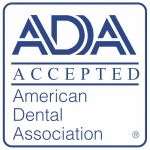 How To Choose The Right Toothbrush For You
How To Choose The Right Toothbrush For You
Brushing regularly is one of the most important things you can do to maintain the health and beauty of your smile. With so many toothbrushes on the market, you may be wondering which one is right for you. Of course, you can always ask us at your next checkup, but until then, here are a few helpful tips in choosing the best toothbrush for you.
Regardless of the type of toothbrush you use, your brushing technique, how often you brush, and the length of time you spend brushing will directly affect how much plaque is removed. And remember, visiting your general dentist every six months for a professional cleaning and checkup is essential to ensuring all the harmful, cavity-causing tartar is removed from those hard-to-reach areas.
General Tips For Choosing The Right Toothbrush
Whether you are using a manual or power toothbrush, here are a few general tips to keep in mind:
- Size - The best toothbrush will have a head small enough to reach into hard-to-reach areas in your mouth and a long, easy-to-grip handle.
- Bristles - Most toothbrush bristles come in three varieties: soft, medium, or hard. Dr. Godwin recommends that his patients use a soft brush head to minimize damage to your tooth enamel and gums.
Manual vs. Power Toothbrushes
- Effectiveness - While numerous studies have been conducted to investigate whether or not power brushes are more effective than manual brushes, most suggest there isn't a significant difference between the two when used properly. Since both types of toothbrushes are effective, the one you choose to keep your teeth clean will depend on your personal preference.
- Cost - While there are many options for both manual and power toothbrushes, manual brushes tend to be significantly less expensive and more accessible than their power counterparts. Additionally, power toothbrush heads may need to be replaced more often than manual brushes.
- Comfort and Convenience - Technology aside, the best toothbrush is the one you'll actually use! Some people may not be comfortable with the vibration created by a power toothbrush, while those with limited mobility may find a power toothbrush easier to maneuver. Studies show that children who dislike the daily chore of brushing, find power toothbrushes easier and more fun. It’s less work, it tickles their teeth, and the timer will let them know they’re all done!
 Lastly, a good quality toothbrush will always have the American Dental Association Seal of Approval. This means that the brush has been tested for effectiveness and safety under normal brushing conditions.
Lastly, a good quality toothbrush will always have the American Dental Association Seal of Approval. This means that the brush has been tested for effectiveness and safety under normal brushing conditions.
Remember to change your toothbrush or power brush head every three months or sooner if the bristles look worn to ensure maximum effectiveness.

